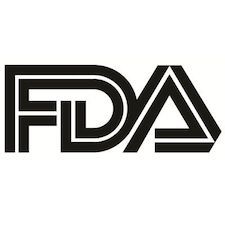Article
FDA Approves House Dust Mite Allergen Extract for Adolescent Immunotherapy
Author(s):
The house dust mite allergen extract was approved by the FDA for treating adolescents with immunotherapy.

This week, the US Food and Drug Administration (FDA) approved Odactra® (House Dust Mite Allergen Extract) treatment for sublingual use by 12 to 17-year-olds with house dust mite (HDM)-induced allergic rhinitis.
House Dust Mite Allergen Extract was previously approved in 2017 for adults between ages 18 and 65 with HDM-induced allergic rhinitis, so this approval expands the list to include those down to age 12.
The medication itself is designed to be administered under the tongue and it provides treatment for allergies to dust mites that lead to runny nose, itchy nose, sneezing, stuffy or congested nose, itchy eyes, and watery eyes.
“In many cases, for adolescents experiencing allergy symptoms throughout the year, house dust mites may be the underlying allergy trigger," said Michael Blaiss, MD, a clinical professor of pediatrics in the division of allergy/immunology, Medical College of Georgia at Augusta University. "Allergies interfere with a critical time of adolescent development when they undergo physical, cognitive, emotional and social changes.”
Blaiss added that the Allergen Extract’s sublingual immunotherapy helps to treat allergies for patients and may even provide support to those polysensitized patients for symptom management.
The FDA made their decision based on data from the MT-18 trial, which was the first phase 3 sublingual immunotherapy (SLIT)-tablet trial for adolescents.
The MT-18 trial confirmed the data from previously conducted North American and Japanese trials indicating that the treatment was well-tolerated in adolescents with HDM.
A post hoc analysis of 2 double-blind, placebo-controlled trials indicated that the new immunotherapy reduced patients’ average total combined rhinitis score—the primary endpoint of the study—by 22% versus placebo (treatment difference of −1.04; P <.01).
The safety profile for the younger age bracket was found by the investigators to be consistent with that of adults.
They found no immunotherapy-related eosinophilic esophagitis, epinephrine administrations, severe local swellings, anaphylaxis, or severe mouth or throat edema.
Hans Lindeberg, senior vice president of ALK North America, described the new immunotherapy as flexible and offering relief to teens and adults.
“This milestone underscores our commitment to continue to bring innovative solutions to the millions of people who suffer from chronic allergies, especially to adolescents during their critical development years,” Lindeberg said.





